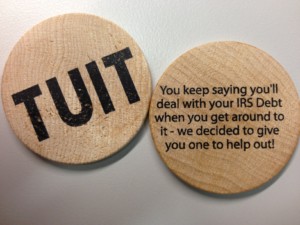IRS CSEDs Are Sometimes Inaccurate
The Collection Statute Expiration Date (CSED) ends the Government’s right to pursue collection of a tax liability. This date is generally 10 years from the date the tax was assessed. However, some situations require the CSED to be recalculated. In a 2013 audit by the Treasury Inspector General for Tax Administration (TIGTA), it was determined that the CSED was not always recalculated accurately. An inaccurately calculated CSED could result in unlawful collection activity by the IRS and violate a taxpayer’s rights. Conversely, the IRS could potentially lose revenue if an inaccurate CSED appears to have expired when the debt is still collectible.
Why TIGTA Did The Audit?
Over the years, the IRS has taken steps in an attempt to improve CSED accuracy. However, the National Taxpayer Advocate has reported miscalculated CSEDs as one of the most serious problems encountered by taxpayers. TIGTA’s audit was initiated to determine whether CSED recalculations were properly and accurately completed to effectively protect taxpayers’ rights and the Government’s interest.
What The Report Found.
TIGTA did a statistical sample of 75 tax modules from a population of 1,085 with manually recalculated CSEDs. What they found was that 29 of the 75 tax modules, or roughly 40%, contained errors. Their specific findings were:
-
Twenty-one had inaccurate CSEDs and eight were missing the required documentation to support the CSEDs.
-
Based on the results of their case review, it was estimated that CSEDs for 260 tax modules were extended longer than they should have been, 43 tax modules were not extended as long as they should have been, and 116 tax modules were unverifiable.
-
Most errors were made by employees. Managerial approval is required when CSEDs are extended or updated for any reason. However, the IRS internal controls requiring managerial approval were not always effective in ensuring the accuracy of manually recalculated CSEDs.
-
An IRS computer system recalculates most CSEDs systemically. Random samples from eight separate activities that trigger systemic CSED recalculations showed that all CSEDs were accurate for six of the eight activities. However, the CSED recalculations were not always accurate for modules involving bankruptcies or estates.
-
TIGTA also identified nine taxpayers who received an annual balance due reminder notice after the CSED expired.
What does this all mean?
If you have IRS debt that you believe has expired, but you are still receiving notices about it, then it could mean one of two things:
- Your CSED was inaccurately calculated
- There were actions taken on your account that stopped or “tolled” the CSED.
This post discusses what tolls the CSED and for how long. If you are looking for how to calculate or recalculate your CSED, we recommend this post from our sister site. It talks about how we offer a service, for a nominal price, where your CSED can be calculated so you know approximately when your CSED will expire.


